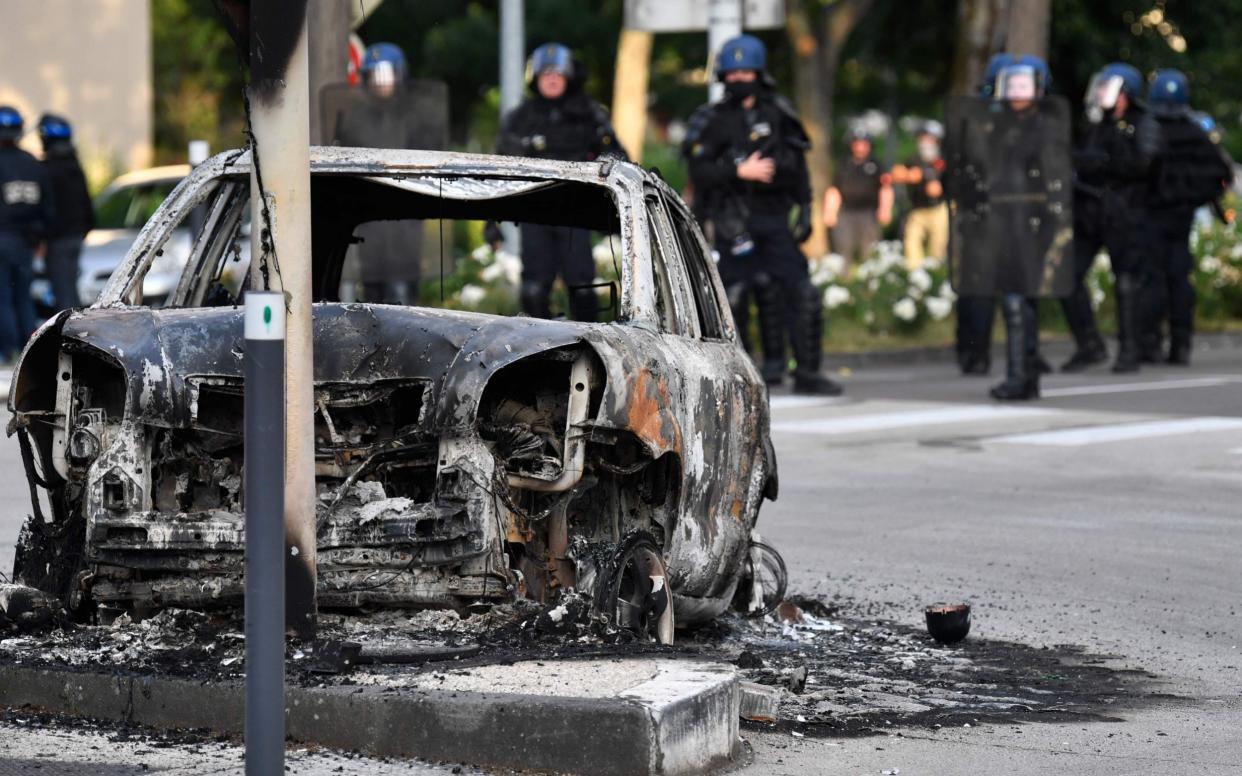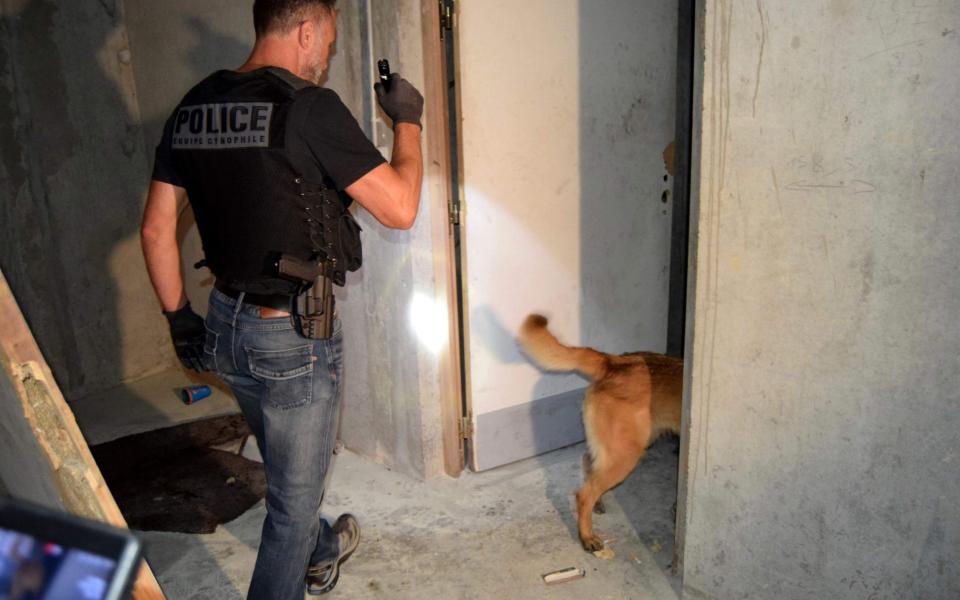France's mustard town, Dijon, shattered by gang violence

Dijon is famous for mustard and wine, but Burgundy’s normally placid historic capital was unexpectedly hit by an explosion of violence between Chechens and north Africans this week.
France was horrified by television pictures of armed gangs engaging in four nights of clashes in mainly immigrant quarters of the city. Hundreds of youths armed with Kalashnikovs, iron bars and baseball bats fought pitched battles while police appeared overwhelmed.
The authorities’ apparent inability to maintain law and order terrified people across the country. “It looked like an urban war,” said Céline Robert, 56, a Parisian housewife. “If this can happen in Dijon, it could happen anywhere.”
The violence just a week before local elections, in which President Emmanuel Macron’s centrist party is predicted to fare badly, prompted a swift political response.
The government said it was considering expelling foreign nationals found to have taken part in the clashes. Christophe Castaner, the interior minister, described those involved as “a savage horde” and promised harsh punishments.
More than 100 police reinforcements were sent to restore calm after the Socialist mayor, François Rebsamen, criticised the government over Dijon’s lack of police and far-Right leaders said the government was incapable of maintaining law and order.
“As justice comes too late and the police lack resources, the Chechen community decided to take the law into its own hands,” Mr Rebsamen said.

The violence was apparently triggered by the assault of a 19-year-old Chechen boy, police said. He was reportedly beaten up by north African drug dealers, prompting reprisals by the local ethnic Chechen community. Chechen youths alerted to the hostilities by social media reportedly travelled from other French cities, Belgium and even Norway to reinforce Dijon’s small Chechen community, estimated to number several thousand.
Violence also broke out in Nice, where two men were shot and wounded in a further bout of hostilities between Chechens and Arabs. The clashes exacerbated tension following widespread protests against alleged police racism and brutality.
As French police arrested six suspected ringleaders of the clashes and raided council estates searching for weapons and drugs, the regional Prefect, Bernard Schmetz, said: “Residents must know that the state is not abandoning them.”
Chamil Abakov, a Chechen community spokesman, said Chechen families in poor districts were fighting to protect their children from drug dealers. “It isn’t good for them to do this because that’s what the police are for in a country under the rule of law,” he acknowledged.
Tens of thousands of Chechens arrived in France between 1995 and 2010 after fleeing a separatist war in Russia’s predominantly Muslim republic of Chechnya. Estimates of the size of France’s ethnic Chechen community vary from 30,000 to 75,000. Most are refugees, Russian passport holders granted asylum or naturalised on the grounds of persecution in Russia. Under French law, it is illegal for the government to keep statistics on the ethnic origin of residents. The north African community, originating mainly from France’s former colonies, Morocco, Algeria and Tunisia, numbers several million.
Yéléna Mac-Glandières, a researcher at the French Geopolitical Institute, said: “Chechens are fed up of drug deals in the entrances of the council blocks where they live, but reports of a Chechen mafia in France are wrong. This is a close-knit community used to defending each other in Russia, and that’s what happened here.”

